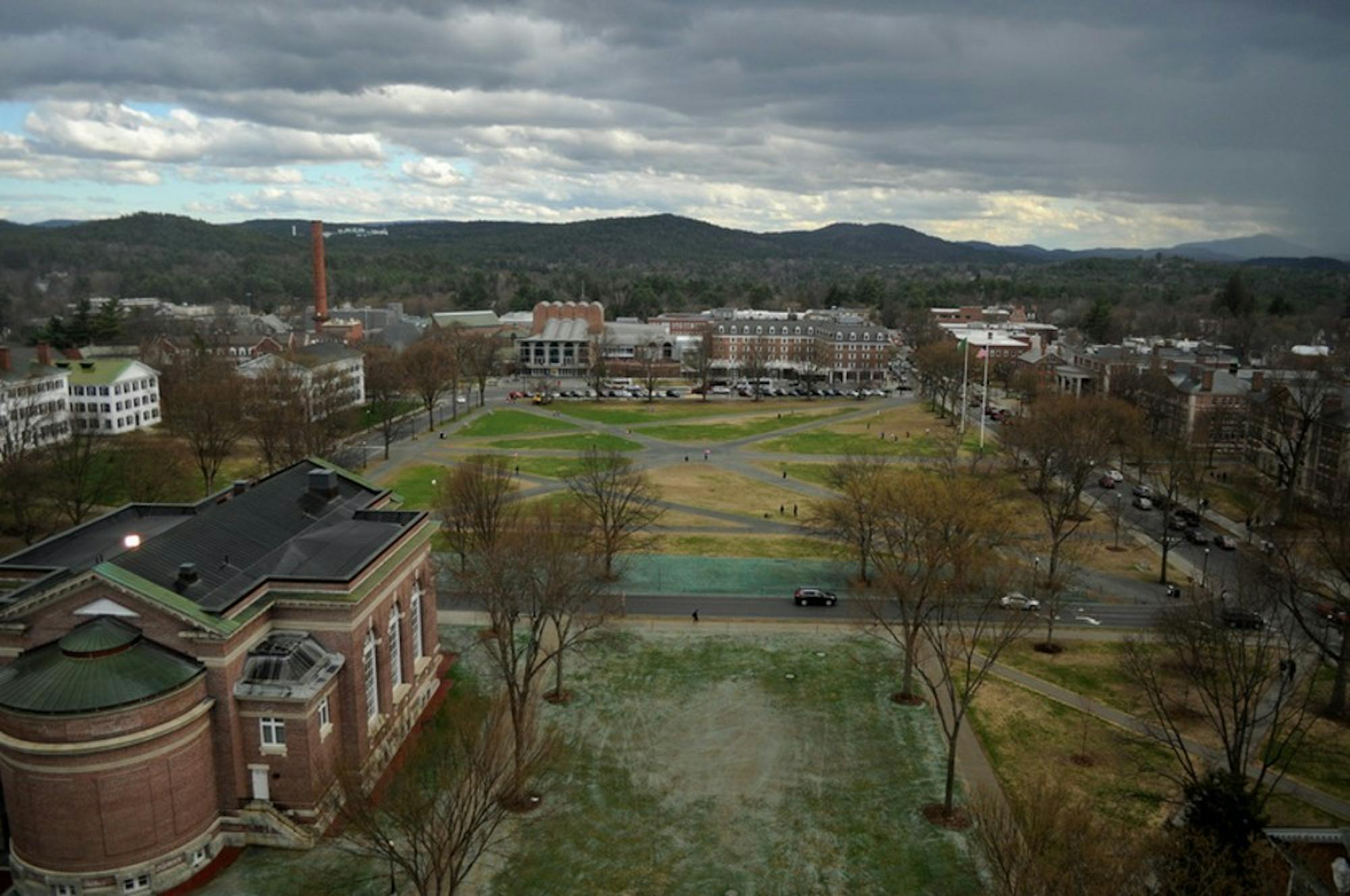On April 21, the Provost’s Office announced that a swastika had been drawn into the dirt on the side of the Green in a campus-wide email. Safety and Security documented the discovery of the symbol — which is associated with antisemitism and genocide perpetrated by the Nazi party — before removing it immediately, the email stated.
“I want our community to know that this incident was an act of intolerance, which is counter to the principles Dartmouth stands for,” Department of Safety and Security director Keysi Montás wrote in an email statement.
The incident came two days after the College commemorated Yom HaShoah — Holocaust Remembrance Day — on April 18 with a daylong reading of the names of children killed by Nazis during the Holocaust. The incident also shortly preceded Yom HaZikaron, Israel’s official remembrance day, on April 25.
“[The timing] did make it more painful, especially because we know the way that the Nazis treated people’s names, and [that their] symbols and demeanor had a significant role in subjugating the Jews,” Hillel at Dartmouth Rabbi Seth Linfield said.
Rabbi Moshe Gray at the Hilary Chana Chabad House added that it was “shocking” to him that a community member would draw a swastika.
“There’s no convenient time for swastikas,” Gray said. “The Nazis exterminated us for six great years… but the timing of this [right after Yom HaShoah] is suspect, to say the least.”
Linfield said that he does not think Dartmouth is immune to antisemitism, citing both the discovery of the swastika as well as the Dec. 2020 shooting of a menorah on the Green by a former member of the Class of 2023.
According to a 2021 survey conducted by the Anti-Defamation League and Hillel International, approximately one-third of Jewish students on college campuses nationwide have experienced antisemitism, most of which goes unreported. In 2022, antisemitic incidents on campuses across the country increased by 41%, which was greater than the increase in general antisemitic incidents, the survey reported.
Linfield said that the rising rate of antisemitism on college campuses across the U.S.is particularly troubling.
“Jewish college students all over the country are facing frightening levels of antisemitism, a trend that is part of the greater global acceleration in hate we’ve seen for the past decade,” Linfield said. “Hillel International reported 561 hateful incidents against Jewish students last year alone.”
Still, Linfield said that the College’s inclusive climate and affinity organizations have allowed Jewish students to freely express their identities despite antisemitism.
“At this time of rising antisemitism, Hillel and the College are actively working to safeguard the environment for Jewish students,” he said.
Gray added that he felt the College “has come a long way in how they respond to antisemitism,” since its response in 2018 to the Pittsburgh synagogue shooting. President Hanlon’s email in response to the shooting did not reference the Jewish community, the attack or its underlying antisemitic motivations, and sparked “outrage” within the Dartmouth community, Gray said.
Peter Mikhlin ’23, the President of Hillel’s student executive board, however, said he was dissatisfied with the College’s email regarding the recent discovery of the swastika, which detailed the College’s response, the meaning of the symbol and provided support resources.
“I think it’s good that they gave phone numbers and emails of where students can seek support, but I don’t think anywhere in here does it say that they’re going to take action to make sure it doesn’t happen again,” Mikhlin said. “They said it has no place at Dartmouth in the very [last] sentence — that should have been the first thing that they said.”
In terms of forming a strategy to combat antisemitism, Gray said that proactive conversations and community education would be two important steps against hate.
“If you have something that you feel is important, you have to do the educating,” Gray said. “And as tired as we are, and as unfair as it may seem, I think as a community we need to do our part and be proactive, educate, engage in conversation and not be afraid.”
According to Linfield, community conversations about complex and difficult topics such as antisemitism “can be transformative to us as a college.”
“Campus climate and inclusion are for everyone,” Linfield said. “The more work we put into safety as a whole, the stronger we will be as a community.”
Mikhlin said that despite past incidents, the resilience of the entire Jewish community is “much stronger than any hate symbol.”
Gray added that the Jewish belief that “being prouder and bringing more light into the world” can defeat hateful ideas.
“The goal and our response will be that we’re going to do more,” Gray said. “We don’t cower because of this. I hope as a community we will be stronger in spite of [this incident].”




